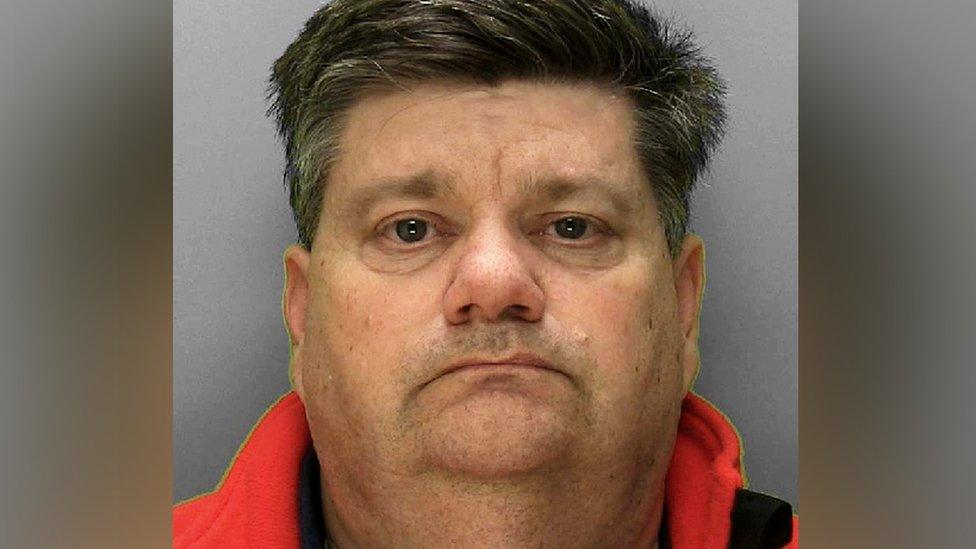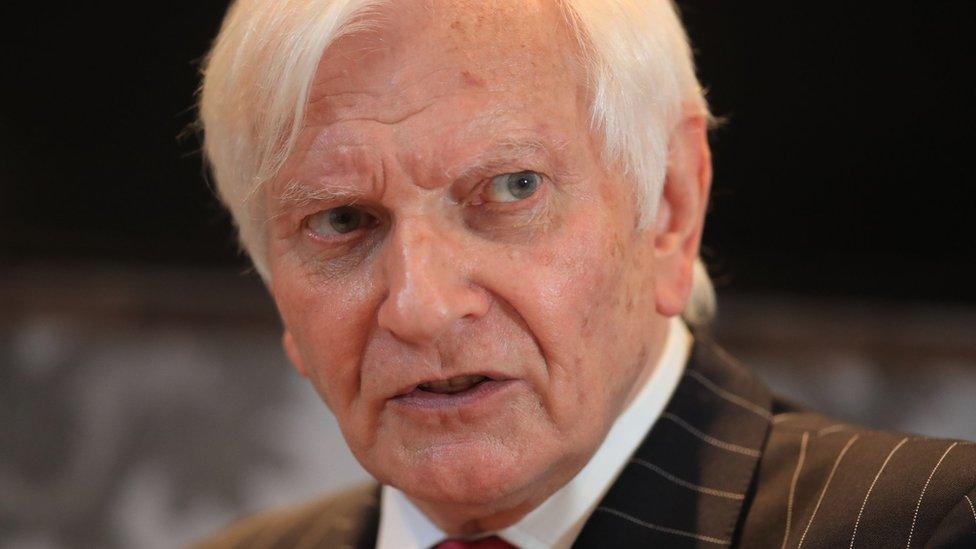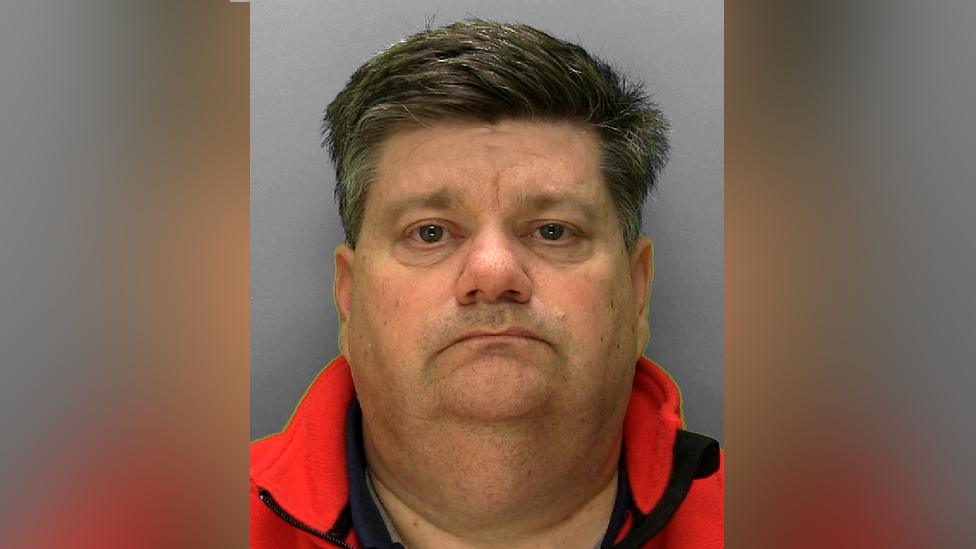Carl Beech case: Police did not investigate other VIP abuse 'lies'
- Published

Carl Beech was jailed for 18 years after being found guilty of perverting the course of justice, fraud and child sexual offences
The Metropolitan Police ignored a recommendation to investigate two other accusers for apparently lying to the force alongside Carl Beech during Operation Midland, it has emerged.
The two complainants - referred to as "A" and "B" - had "both deliberately lied", according to retired High Court judge Sir Richard Henriques in his report into the much-derided Scotland Yard investigation.
The Henriques report recommended that "offences of attempting to pervert the course of justice be considered in the cases of A and B" and it would be appropriate for another police force to carry out such investigations.
The main accuser in Operation Midland, Carl Beech, was referred to Northumbria Police. He is now serving 18 years in prison for perverting the course of justice.
Beech - who was known as "Nick" during the police investigation - made false allegations of sexual abuse and murder about a group of MPs, generals and senior figures in the intelligence services in the 1970s and 1980s.
The investigation prompted searches of the homes of former Conservative MP Harvey Proctor, D-Day veteran and former chief of the defence staff Lord Bramall and former home secretary Leon Brittan's widow, Lady Diana Brittan.
'Prolific liar'
The two men were first interviewed in September 2015, with the high profile inquiry not closing until the following March.
Scotland Yard made an internal decision against investigating the pair despite a senior officer privately saying they were liars.
One of them - who previously made other false claims to police - admitted researching the falsely accused, and also has convictions for fraud, theft and sexual offences against children.
The other man, whose brother described him as a "prolific liar", has convictions for theft, fraud and violence.
The Henriques report also said a senior Met officer - then Deputy Assistant Commissioner Steve Rodhouse - considered the men to be liars.
It quotes from a private presentation given to Sir Richard in August 2016 by Mr Rodhouse, who oversaw Operation Midland, in which he said: "I am satisfied that both A and B have told deliberate lies".
However, when Operation Midland closed on 21 March 2016, Scotland Yard issued a statement which said detectives "have not found evidence to prove that they were knowingly misled by a complainant".
Mr Rodhouse told the media that day there were three complainants and, in June that year, the force answered a Freedom of Information request about the number of accusers interviewed by stating: "Three relate directly to Operation Midland."
Following questions from the BBC about whether it had referred the other accusers for investigation, Scotland Yard said: "Sir Richard recommended the MPS [Metropolitan Police Service] consider whether A and B committed criminal offences.
"Neither undertook a sustained campaign of damaging lies like Carl Beech did and, on the basis of their individual cases, no investigation was initiated."
The force also said it concluded that "investigating them was not appropriate or proportionate due to a number of issues including their mental health - consequently the matters were not referred to an external force".

Harvey Proctor's home was searched
The Henriques report recorded the men's "detailed and lengthy" allegations "occupied considerable amounts of police time" and that "if their accounts had withstood scrutiny, it is highly likely that charges would have been brought against the suspects".
Sir Richard's review of Operation Midland was published in largely unredacted form last week, three years after a heavily redacted version - which did not disclose the recommendation about complainants A and B - was made available.
Harvey Proctor, who lost his home and job after being falsely accused by Carl Beech, said the evidence suggested the effect of A and B on Operation Midland was to "extend the investigation into me by five or six months".
He added: "All the information suggests they should be referred to an outside force for seeking to pervert the course of justice.
"They should be regarded as innocent until a police inquiry and a jury shows otherwise, the reverse of how I was treated."
- Published26 July 2019

- Published9 October 2019
